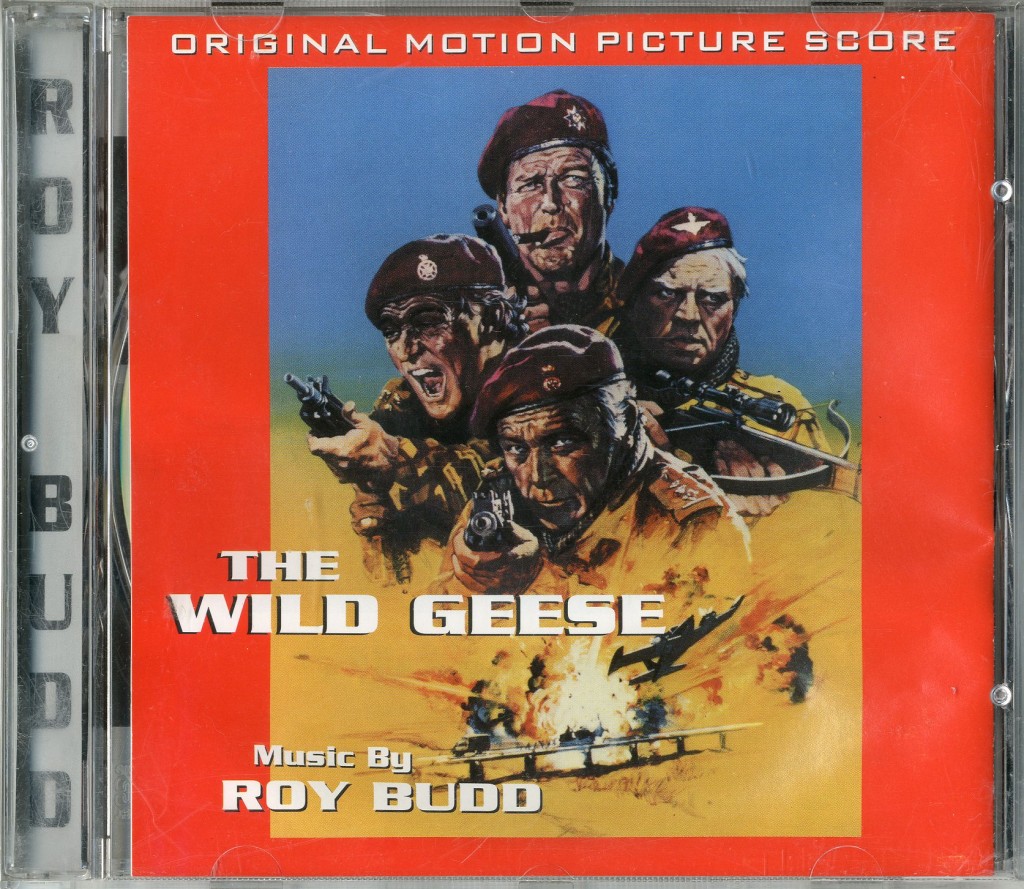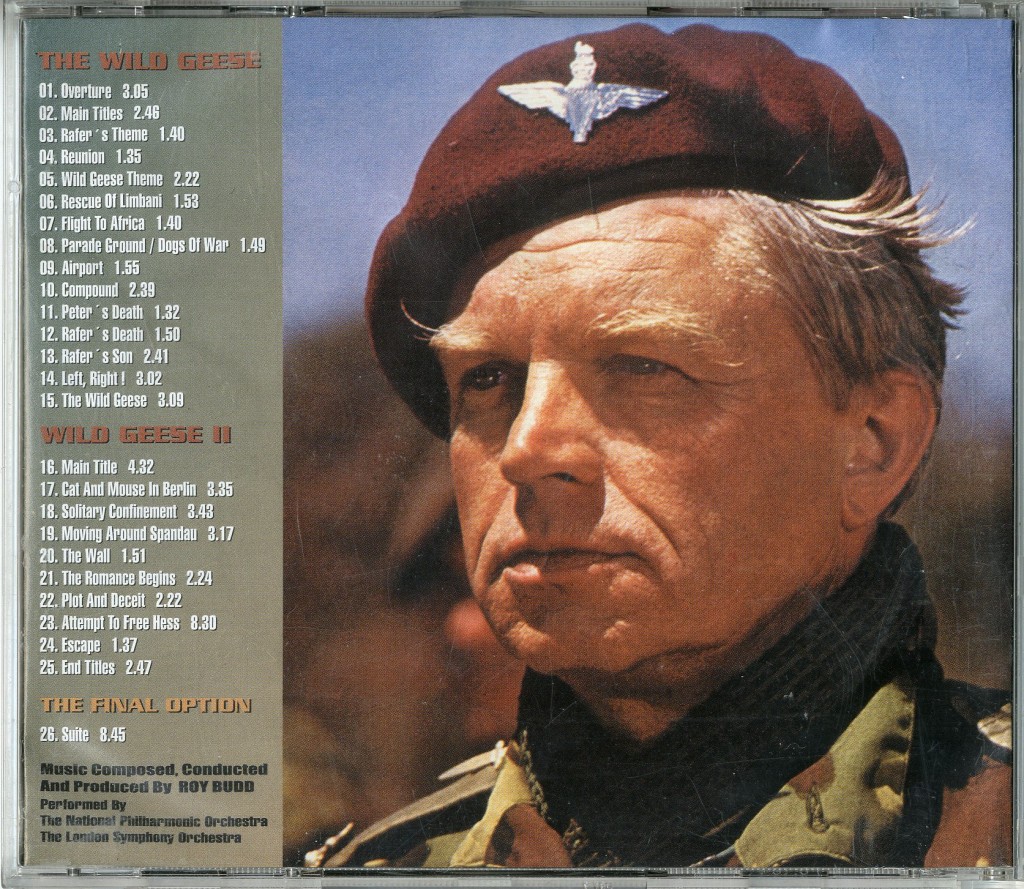Slightly behind Jerry Goldsmith and John Williams, I think my next favorite composer is Roy Budd. A jazz pianist, Roy Budd was a familiar sight in London night spots in the 1960s before he was persuaded to try his hand at writing music for movies. His scores for Soldier Blue (1970), Fear is the Key (1972) and especially Get Carter (1971) made him an indispensable part of the 1970s film scene, particularly later, under the aegis of producer Euan Lloyd.
Most of Budd’s scores are fluid jazz, flavored with dynamic melodies and incomparable orchestrations. Scores like The Stone Killer (1973), The Marseilles Contract (1974) and Diamonds (1975) are exercises in silky funk, while Kidnapped (1971) and The Sea Wolves (1980) feature more traditional orchestral arrangements.
However, my favorite Budd themes are military in style. I love his theme for Zeppelin (1971), and it is a crime that a complete soundtrack for it has never been released. Then there is The Wild Geese (1978), a mercenary war adventure which spawned a belated sequel seven years later. The Wild Geese has a dual distinction for Roy Budd in my mind: it’s among the best films on which he ever worked, and among the finest soundtracks he ever wrote. Of course, that’s just my opinion.
Budd’s main theme for The Wild Geese — which, admittedly, comprises most of the soundtrack — is a glorious, major key melody that soars with grace and majesty, played by a full orchestra led by a splendid brass section. It perfectly captures the movie’s joy of adventure. The “Overture” sets the tone, showcasing the main melody without a great deal of metronomic percussion or bass, then segues into the secondary theme, the jaunty march of the enlisted men. Then, “Main Titles” slows the melody and sets it to a stately rhythm. “Reunion” slows it even further and adds some emotional coloring before resuming a more exciting pace.
“The Wild Geese Theme” is played twice: once as a resplendent theme for the mercenary heroes (Richard Burton, Roger Moore, Richard Harris, Hardy Kruger) and again as the fifteenth track, a live orchestral version not used in the film, using a slightly different orchestration. Other themes are explored in “Rescue of Limbani” and “Compound,” but both are suspenseful, rhythmic action cues. My favorite cut remains the “Main Titles” because it stands apart from the rest of the score, yet still retains its brilliance.
Budd’s music for the sequel, The Wild Geese II (1985), is more akin to his usual scoring. It’s suspense music and action cueing. His “Main Title” theme is somewhat similar to that of the first film, but not nearly as melodic or majestic. Much of this score is in a minor key and involves string instruments rather than brass, with an emphasis on bass guitar. My favorite cut from this score is “Solitary Confinement,” a dirge-like morif with several striking key changes and an ever-increasing intensity.
The final cut on this CD is a suite from another action thriller, The Final Option (1980). Budd’s theme is a simple descending three-note motif repeated four times, surrounded by lots of ’70s style funk and bass guitar. It’s similar to Goldsmith’s Our Man Flint theme, which I love. The final two minutes showcase the pianist’s fingers dancing in and out of the melody with virtuosity. This is cool stuff. (10:1).


